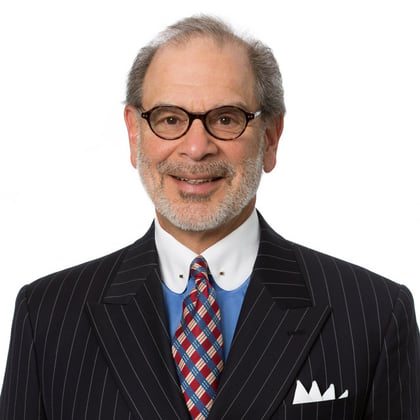In the global race to launch quantum computing — extraordinarily powerful and with capacity to defeat the security protecting everything in digital form — clearly the United States, not Russia or China, must emerge dominant.
“There are huge stakes and economic risk going forward,” Thomas Vartanian, for 45 years an attorney for financial institutions and who served in the Reagan and Carter administrations, tells ThinkAdvisor in an interview.
In his new book, “200 Years of American Financial Panics: Crashes, Recessions, Depressions and the Technology That Will Change It All” (Prometheus, 2021), he explores how tech will affect the frequency of financial crises.
Indeed, in the interview, he predicts that technology will likely be a cause of the next crisis, a consequence of ever-increasing online activity, which heightens susceptibility to “the malicious use of technology.”
“We can expect that we’re going to wake up one morning and ATMs won’t be spitting out dollars and the markets will have disappeared,” contends Vartanian, who represented parties in 30 of the 50 largest U.S. bank and S&L failures.
He argues that unless the government shifts to “smarter financial regulation” — such as use of artificial intelligence — that functions on a “real-time basis against real-time threats” to predict disasters, “we’ll continue to have financial crises over and over again.”
“In the history of the United States,” he maintains, “no regulator has ever predicted and prepared for a financial crisis.”
Worse, “the government has facilitated, caused or encouraged inadvertently much of the private-sector abuses” that are blamed for financial crises, he says.
In the Reagan administration, Vartanian was general counsel of the Federal Home Loan Bank Board; during the S&L crisis, he was general counsel of the Federal Savings and Loan Insurance Corp.
Retired from practicing law, he is the executive director of the program on financial regulation and technology at George Mason University’s Scalia Law School and a law professor there.
He also taught banking and financial technology law at the law schools of Georgetown University and Boston University.
ThinkAdvisor recently interviewed Vartanian by phone. Speaking from Washington, he noted that from the time the Federal Reserve was established, in 1913, the U.S. has had — oddly, perhaps — “ever-larger financial panics.”
The time is now, he argues, for the government to start predicting and averting such crises.
Here are excerpts from our conversation:
THINKADVISOR: “The next technological frontier will increase cybersecurity threats,” you write. Please elaborate.
THOMAS VARTANIAN: With today’s supercomputers, if you were to run a brute-force attack and go through every permutation possible to try to break the 2048-bit encryption code, it would take 300 trillion years.
Quantum computers, on the horizon, can move much more quickly and powerfully. With one of relatively significant strength, you could break that encryption in 30 seconds.
Wow! What are the implications?
All the security that’s protecting every piece of information and data in digital form — including all the money, value, securities, trading [and so forth] — can be broken in seconds.
When will quantum computing be in use?
Facebook, Amazon, the Russians, the Chinese are all scampering to be the first to get quantum, which is based on a much different technology than today’s computers.
So the question is: What happens if the Russians and the Chinese become quantum-dominant before the United States?
Therefore, there are huge stakes and economic risk going forward. So the United States and its allies have to remain dominant in the world of technology. But in the last 10 years, we’ve been losing ground.
Quantum computing, and technologies that don’t even exist yet, will enable the strongest security possible or undo all the security that’s been done in the past.
It’s a matter of how these technologies are used.
You write there’s “at least a better than 50% chance” that technology will be a cause of the next financial crisis. Please elaborate.
Since 1994, when financial institutions transitioned from proprietary networks to the open architecture of the internet, they were susceptible to hijacking and other kinds of malicious uses of technology.
Given that and the inefficiencies of software, there’s an inability to stop the hijacking of critical infrastructure. The more we go online, the more susceptible we become.
So we can expect that at some point down the line — if not tomorrow — we’re going to wake up one morning and ATMs won’t be spitting out dollars, and the markets will have disappeared.
It shouldn’t be a surprise as to why we got to this point. Technology can create great quality of life, and it can also be used to put the lights out.
The U.S. government is “always ill-prepared” for a financial crisis, you say. What about all the economic and financial problems that hit us in 2020?
In the history of the United States, no regulator has ever predicted and prepared for a financial crisis.
Of the last 10 financial crises since 1819, the government, and particularly the Federal Reserve, was most prepared for the 2020 crisis because they rolled out everything they did in 2008 to provide liquidity and pump cash into the system.









 June 02, 2021 at 05:22 PM
June 02, 2021 at 05:22 PM










